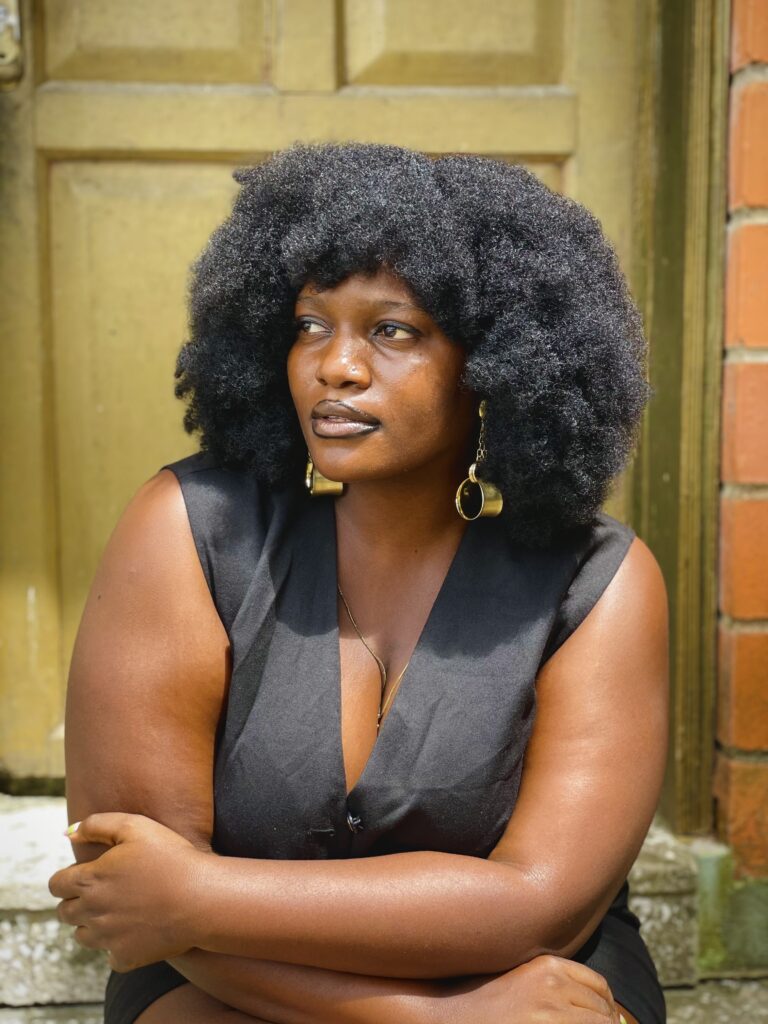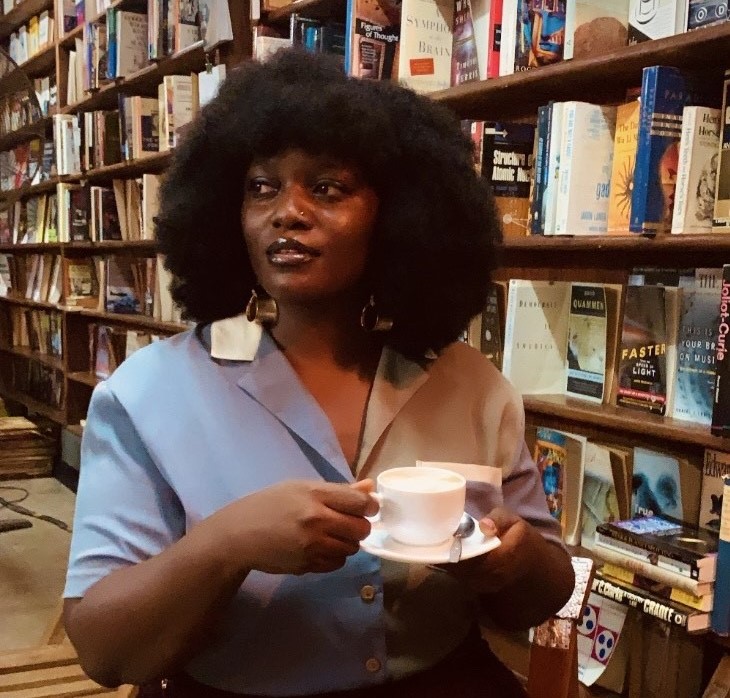The Stack Journal spoke with Nkeiruka Ifeonu, a product designer with over three years of experience. NK tells us about her role as a product designer and what it means to be a woman in a male-dominated space.
Can you officially introduce yourself to us and what you do in the tech industry?
My name is Nkeiruka Ifeonu; I am a product designer. I work on user interface, user experience, mobile apps and web platforms. I have worked across different industries like Edutech and Fintech, but currently, I have a full-time job at a health tech company. Outside of Tech, I am a content creator, run a charity case, and manage a community of goal-focused women.

When it comes to product design, many people have their definitions, but what does it mean for you?
They say product designers push pixels, but to me, a product designer is in charge of the user interface and their experience. For example, from the moment users download the app on the Play Store and App Store to the onboarding stage to when they use it to serve whatever purpose they want, a product designer ensures the app is visually appealing, functional, usable, and valuable for them.
They ensure it is user-friendly, conduct research and surveys to know more about the users and what they want, become empathetic towards them, and then try to solve their problem by designing a product that addresses their needs. So, as a product designer, I make the user interface and experience friendly, usable and valuable.
Why did you decide to be a product designer? Why did you choose Tech?
I was a plus-size model before, but then I got tired of it and started doing social media marketing. For social media marketing, I started using Canva for many designs.
Then I met a guy on Bumble who said he had seen my designs and asked if I had heard of Product design; I said yes, but it seemed a bit technical, and I didn’t think I could do it. He said there was nothing too technical about it and that I should look into it because it seemed like I’d be an excellent product designer.
After that talk, I researched more about it and watched YouTube videos. I was intrigued by it because I have always loved shapes and colours, so after researching, I realised it was what I liked. I took courses and watched a video showing me all the steps to becoming a successful product designer.
Obviously, my journey didn’t go according to the video, but it helped guide me and show me the reality of being a product designer. Within two weeks of learning, I had started using Figma. When my family saw me, they were like NK, so now you want to enter Tech? And I was like, Yes, because I can, and that was why and how I joined the tech industry.
How many years have you been a product designer?
It has been almost three years.
How are you finding the Tech Industry?
It’s not bad. Tech is fascinating to me; the fact that we can design and solve actual problems like superhero work is fascinating. I love building products, and I love product design in the tech field. I like the idea of using Figma to design. I can sit down for hours just to find the right colour and typography. I love the whole process of product design.
What are the challenges you faced as a woman in the tech industry?
In other industries I’ve been in, one major challenge I faced is fatphobia; I got back-lashed and slut-shamed a lot when I still had my store and I was trying to advertise my piece. However, for the tech industry, I go through slut-shaming a lot. Recently, I posted a video because I also make content relating to Tech, and there is a segment where I talked about an app. When I posted the video, someone replied that my outfit distracted them from what I was saying. It was ridiculous because I had to share it with people, and they didn’t even see anything terrible in it.
There was also a time when I had to wear turtlenecks, which were ugly and looked lazy on me, but I needed to wear them to be taken seriously. Otherwise, I’d be accused of using my body to get what I want or ‘Sell Market’.
There was also a time when I joined a company as an intern, and the product designer asked me to ‘Detach Instance’ in Figma. I told him I didn’t know it; he laughed and chuckled, then said since he will be teaching me all these things, I should bring wine to his house to thank him, and when coming, I should wear something nice and short.
It is ridiculous that women have to put in ten times more hard work to be taken seriously or seen.
What advice will you give to women who intend to join the tech industry?
Okay, so there was a time I couldn’t speak up when someone criticised my work because I was scared to be perceived as aggressive; however, I have come to a point where I don’t care anymore. I won’t allow people, especially men, talk to me anyhow because I am a woman and because men feel they know more than women do. For young girls coming into Tech, I’d like them to prepare their minds for things like this so they won’t be surprised. They should know how to handle and fight clear cases of misogyny.
I think another part that they might face is naysayers. People always tell you ‘You can’t do it’ because, in their little minds, they can’t, so they project on you and say you can’t do it. Don’t ever listen to them.
Another problem is trying to seek an internship to learn more. There are not many internship opportunities, and I think women should prepare themselves for that and try to go all out while seeking an internship. For me, I had to enter the DMs of CEOs and shoot my shot professionally; that’s one piece of advice I’d give to anybody entering Tech.
Once you’ve gained enough knowledge about the skill, start cold emailing. One hack I discuss is going to adplist.org to find mentors for free. I also want them to be open to learning or asking; I went to adplist.org to find product designers who helped me, and the best thing about it is that most of them were willing to help. I even went as far as asking them to check my portfolio.
When you send them a message, please Introduce yourself and talk about your background, no matter what it is; talk about all the important things you know can be useful.
Lastly, I need them to be ready to dedicate their time to reading, learning, and becoming better. Take more courses and be open to learning; nobody is too young or old to learn Tech.
Thank you so much for this. You work remotely, right? How is that going for you?
Working remotely has been good; I don’t think I can work in an office again. I feel I will not be my best there because of the pressure. What works is you give me a deadline, I work with it, submit it before the deadline, review my work, and work on it again. Google Meet and Microsoft Teams are used to aid remote work. And oh, I love companies that do brainstorming sessions by lodging you in a service apartment or taking you to a resort for sprint or employee motivation.
We asked NK about the controversy that women are given more opportunities than men to learn tech skills, and she said, “There wouldn’t be a solution if there were not a problem; organisations saw that men are more saturated in Tech than women, hence the need for opportunities. We are not making this up; the ratio of men to women in Tech is so unbalanced. For instance, in a team of 7 people, I’d be the only woman there, which is not supposed to be so. Let’s focus on the problem and address it. Let’s focus on why there are unequal opportunities for women, why there is still a gender pay gap, and why there is still misogyny that deprives women and girls of entering Tech. I have conducted a survey before on Twitter, and I know what I’m saying when I say more women need to join the tech industry”.

Leave a Reply